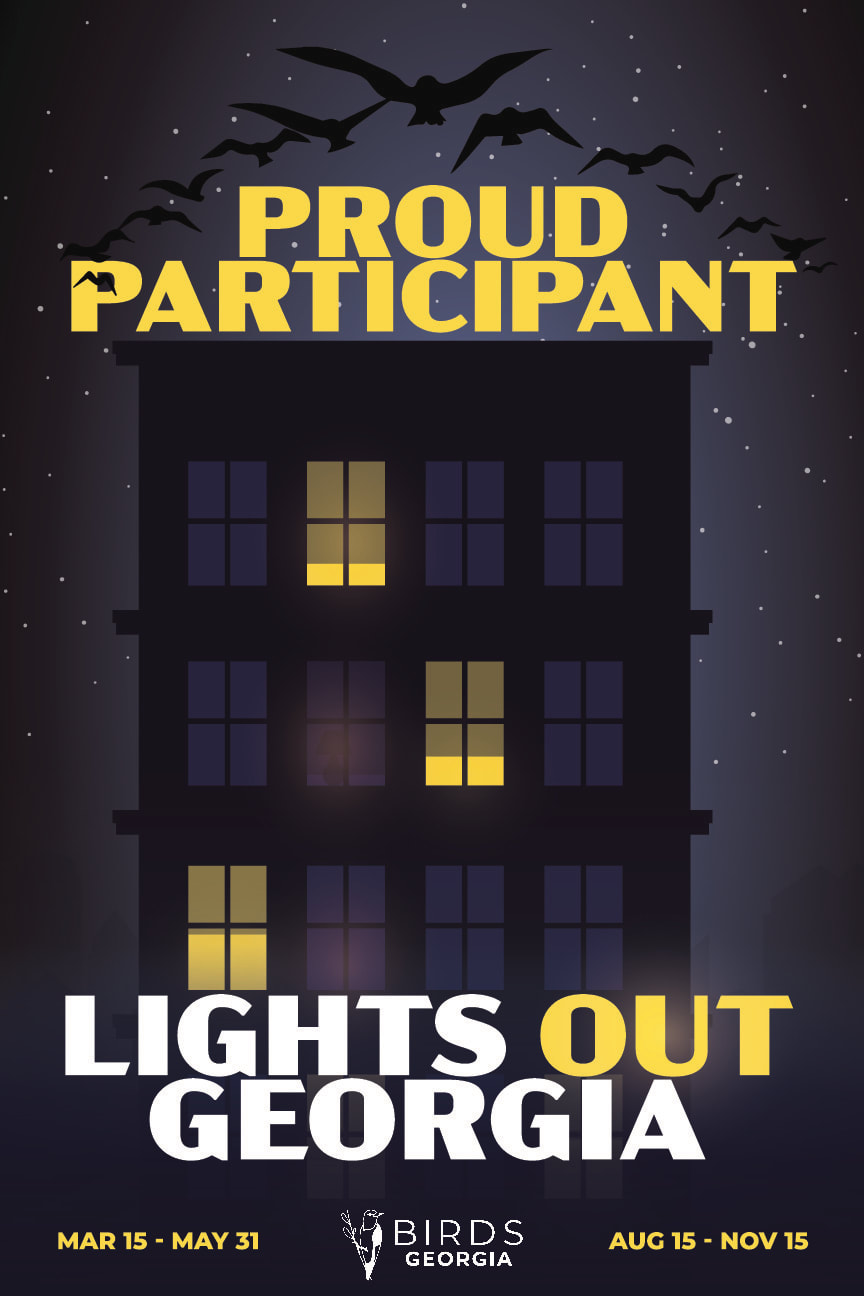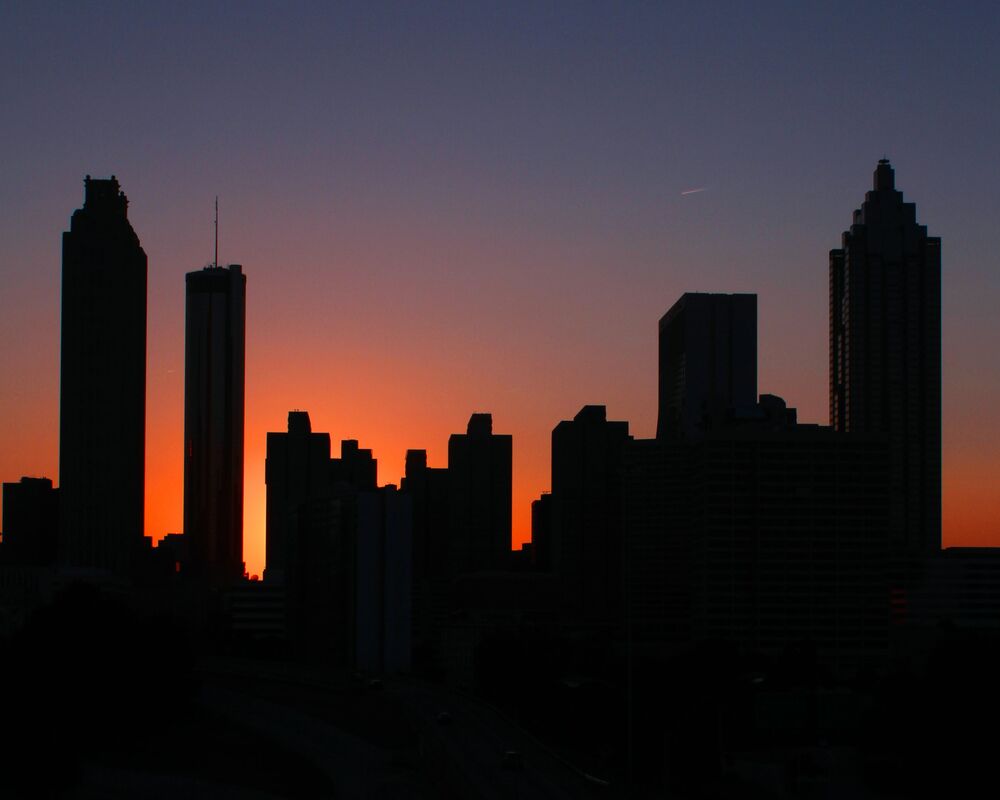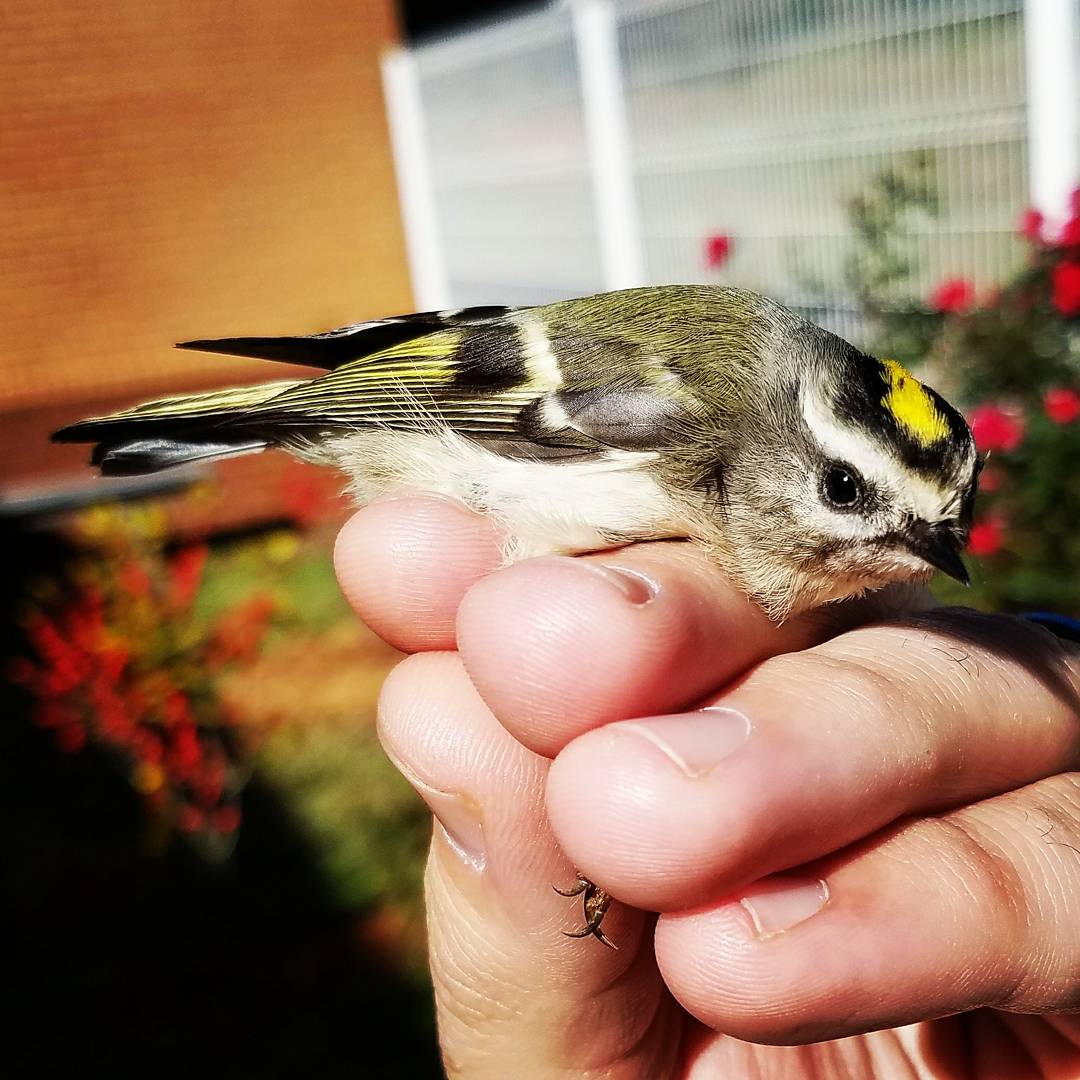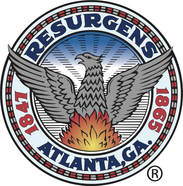Atlanta skyline at night. Photo by John Behr.
Let's make Georgia's Skies Safer for Migrating Birds
YOU can help make Georgia safer for migrating birds by reducing or eliminating outdoor lighting between the hours of 12:00 PM (midnight) and sunrise during peak bird migration.
|
Spring Migration: March 15 through May 31
|
Fall Migration: August 15 through November 15
|
Go a step further:
|
The problem
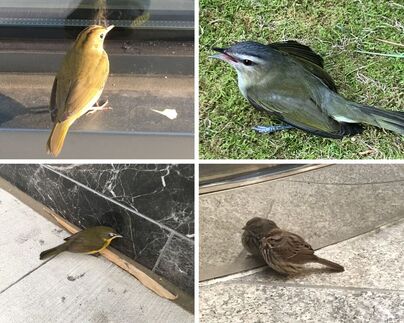
Birds Georgia has been studying collision-related bird deaths through our Project Safe Flight Program since 2015. Project Safe Flight volunteers patrol selected routes during peak bird migration periods collecting birds that have died or been injured after colliding with buildings. Click here to read more about Project Safe Flight.
Most migrating birds pass through Georgia during the nighttime hours. Generally, the evening hours are calmer and safer for migrants. Predators are less active at night, skies are often less turbulent, temperatures are cooler, and landing at daybreak allows for optimal foraging conditions. For generations, populations of warbler, thrush, and vireo have taken advantage of the darkened environment on their epic twice-yearly journey. However, urbanization has wreaked havoc on these birds as the ever-present glow of artificial light turns the normally safe nighttime sky into a perilous pathway.
Bright lights confuse and disorient resident and migrating birds as they pass over brightly lit cities, like metro Atlanta. These birds may collide with structures or become trapped in beams of light where they circle until they are exhausted. Once on the ground, brightly lit building lobbies, reflective glass showing trees and shrubs, transparent facades, or even indoor plants near windows can lead to more collisions. This can all be made worse by weather patterns that force birds lower and in a more direct line with our buildings.
Most migrating birds pass through Georgia during the nighttime hours. Generally, the evening hours are calmer and safer for migrants. Predators are less active at night, skies are often less turbulent, temperatures are cooler, and landing at daybreak allows for optimal foraging conditions. For generations, populations of warbler, thrush, and vireo have taken advantage of the darkened environment on their epic twice-yearly journey. However, urbanization has wreaked havoc on these birds as the ever-present glow of artificial light turns the normally safe nighttime sky into a perilous pathway.
Bright lights confuse and disorient resident and migrating birds as they pass over brightly lit cities, like metro Atlanta. These birds may collide with structures or become trapped in beams of light where they circle until they are exhausted. Once on the ground, brightly lit building lobbies, reflective glass showing trees and shrubs, transparent facades, or even indoor plants near windows can lead to more collisions. This can all be made worse by weather patterns that force birds lower and in a more direct line with our buildings.
The solution
|
Lights Out Georgia is a voluntary effort designed to make Georgia safer for our resident and migratory birds. Modeled after similar successful programs in New York City, Chicago, Minneapolis, and Toronto, Lights Out Georgia participants pledge to take bird-friendly steps during spring and fall migration between the hours of 12:00 midnight and sunrise to create safe passage for migrating birds.
|
|
Building managers and homeowners pledge to reduce lighting by:
|
Birds are not the only beneficiaries of Lights Out Georgia. People can benefit, too! The goal is not to completely darken cities, which could create safety concerns, but to reduce decorative and unnecessary night time lighting to create safe passage for birds. A building or home has a lot to gain by reducing their lighting. One building in Chicago was able to demonstrate an 80 percent decrease in collision-related mortality by simply turning off its lights!
Beyond saving the lives of birds, Lights Out participants:
Beyond saving the lives of birds, Lights Out participants:
- Save money
- Reduce energy usage and be more eco-friendly
- Follow sustainability guidelines (for corporate structures)
- Enjoy the stars!
Join the LIghts out georgia effort
additional REsources
Lights Out Georgia Fact Sheet
Lights Out Georgia Toolkit
Why Do Birds Collide with Buildings - Daytime
Lights Out Georgia Toolkit
Why Do Birds Collide with Buildings - Daytime
Our Partners
Birds Georgia is excited to partner with the following organizations
Birds Georgia thanks our Lights Out Georgia corporate participants:
Center for Human and Civil Rights
City of Atlanta
Cox Enterprises (5 buildings)
Highwoods Properties, Inc. (4 buildings)
Midtown International School
Parmenter (4 buildings)
Southface
Vireo at Piedmont Park
The Marshes at Skidaway Island
Center for Human and Civil Rights
City of Atlanta
Cox Enterprises (5 buildings)
Highwoods Properties, Inc. (4 buildings)
Midtown International School
Parmenter (4 buildings)
Southface
Vireo at Piedmont Park
The Marshes at Skidaway Island

